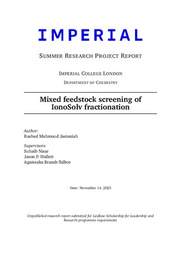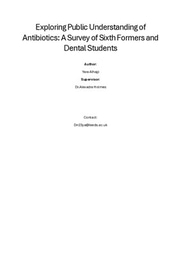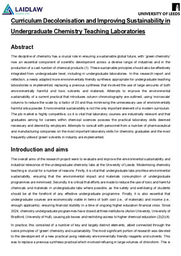Reflection: Migration Matters Festival 2024

As this was the first step of being introduced to the project, I was able to learn a lot about the background and importance of this research for people working in the NHS today. Here is my account and reflection on the event.
First of all the room was introduced to the concept of registration and ‘The Register’ as well as the prominence of non-British workers in the NHS today. Around ⅕ healthcare workers in the NHS are non-British, which equates to about 265,000 people. As this is such a significant proportion of people, this begs the question of how these people come to be registered in the UK; as well as how they are supported in this process. Registration is a tool of law which is used to recognise qualification to practice in a health setting. The Register was described as a list which anyone can access as well as a community, which comes with many opportunities and responsibilities. A trained medic from India, Manou, talked about ‘provisional registration’ meaning a professional must work at least one year in the NHS before they can be fully registered and undertake the full responsibilities of the register.
Furthermore, Manou talked about the culture shock he experienced when he started working as a doctor in an NHS. Having completed extensive English language exams to even qualify for the Register (known as the IELTS), Manou expected working with his native English colleagues would be straightforward. However, he was met with a chorus of “cuppa tea?” and “a’ight?”. Whilst Manou looks back on this experience with humor having picked up the local slang and managed to integrate into the team, I was wondering whether these famously difficult exams really prepare internationally-trained workers for a real-life healthcare setting.
We also heard from Nelson, a highly-qualified nurse from Cameroon who came to the UK in 2022 as an asylum seeker. He is now a refugee and is in the process of registering as a nurse to work in the UK. He reflected on his experiences as an asylum seeker, talking about the struggles such as depression, anxiety and PTSD. He mentioned particularly the anxiety that comes from having a lack of information about your case, as well as not being able to work therefore not being able to send money back to his family in Cameroon. At the time of the festival, Nelson was about to undertake his English Language exam, a notoriously difficult test rich in specialist language. Nelson’s story was very powerful, and the two accounts I had heard encouraged me to think about the standards to which healthcare workers from overseas are held to. The language standards which these workers are held to seems significantly higher than the expectation of English doctors to learn the language of their host country. In Abu Dhabi for example, medical school is taught in English, therefore it is not expected of English-speaking doctors to learn Arabic. However, many patient interactions take place in Arabic as this is the language which comes naturally to patients so learning a small amount of Arabic, enough to communicate basically, is beneficial (Alnahdi, 2021). This made me question the way in which internationally-trained healthcare workers are approached in the UK. If speaking the native tongue of your patients is beneficial, why is this enforced in the UK, but not in the UAE?
One thing that became apparent from the stories was the lack of consideration for refugee workers who come from superior positions. Senior nurses must begin again from Band 5 no matter what their previous level or qualifications were. This results in the NHS having a number of over-qualified healthcare professionals who are not being utilised to their full capability. This is also very disheartening for these people, who amidst the changes of settling in a new country, must also grapple with the career set back and the reduction in responsibilities that they worked hard to get.
We also heard from Sheffield-based charity ‘ReSTORE’ who aim to support refugee nurses to pass the necessary exams to work as a nurse in the UK, as well as find them jobs. They help nurses to thrive when returning to their nursing careers. 18 out of the 20 nurses looked after by ReSTORE now have jobs. Representatives Blerta and Emma talked powerfully about the obstacles that refugees face, including challenges such as a diploma being burnt or lost - meaning there is no proof of qualification. ReSTORE provides emotional, holistic and practical support to refugees, and the programme is already being replicated in Switzerland and America. I was moved by the passion of the people behind this programme, and it was clear that this kind of support should exist in every region in the UK. This was proven by the example given of a refugee nurse living in Manchester who commutes to Sheffield in order to receive support from ReSTORE. For many refugee nurses living outside of this area, there is a lack of practical or emotional support to overcome the many challenges that face a refugee to re-enter their career as well as integrate into society.
‘If I lose my job, everyone has to go back.’
Most people know that it’s not easy for healthcare workers to leave the stress of their jobs behind hence they go home at night. Doctors and nurses find themselves thinking back over mistakes and worrying about the well-being of their patients. For internationally-trained healthcare workers, whose right to remain in the UK depends on them filling a certain position, this stress is significantly increased.
“We need a diverse workforce to address the needs of an increasingly diverse population.”
- Professor Nasreen Ali (Co-Investigator ‘Making it to the Registers’)
The British healthcare system has long relied on international workers to function, notably after the establishment of the NHS when Caribbean women were called upon to train as nurses and work in the NHS (Sheffield, 2023). It seems that there are still numerous challenges that internationally-trained healthcare workers must overcome in order to register in the NHS. On a financial level, many migrants find themselves stuck in between not qualifying for a bank account because they don’t have proof of address, but also not having proof of address because they don’t yet have a bank account. Similarly, it’s common that applicants must have two types of identification to qualify for an account, this is particularly problematic for migrants or refugees who might only have access to one. Often, internationally trained workers find themselves stuck in a bureaucratic in-between, prevented or delayed from starting work.
‘As you go up the management ladder it gets whiter and whiter. And no women.’ - Dr. Manou Sundaraj
Another issue that was expressed was the lack of progression to authority positions for internationally-trained healthcare workers. According to one of the representatives for ReSTORE, around 40% of nurses are internationally trained yet only 10% of these are represented above band 7. This calls into question the existence of systemic and structural discrimination.
‘If you are not upper-white middle class you will struggle in the NHS.’
Author of ‘Elite Migrants’, Dr Yasmin Ghazala Farooq, was in the audience and during the Q&A session talked about the disproportionate number of South-Asian doctors who work in unfavored, deprived areas. Immigrant workers historically have been viewed as commodities to fill the gaps in British society which the British workforce can’t or don't want to fill. This talk highlighted for me the importance of a diverse workforce but also the prejudice that still exists towards both migrant and refugee workers in the NHS. This demonstrates the importance of this research project as this research can be used both as an encouragement for policy change, but also as an avenue to tell the stories of the many internationally-trained healthcare workers who bolster the NHS.
Bibliography
Alnahdi, M.A., Alhaider, A., Bahanan, F., Aldubaikhi, A., Aljehani, A., Omair, A. and Alaqeel, M. 2021. The Impact of the English Medical Curriculum on Medical History Taking from Arabic Speaking Patients by Medical Students. Journal of Family Medicine and Primary Care. 10(3), pp.1425–1430.
Anon n.d. ReSTORE Refugee Nursing Programme. Training Hub. [Online]. [Accessed 11 July 2024]. Available from: https://yhtraininghubs.co.uk.temp.link/south-yorkshire/south-yorkshire-schemes/restore-refugee-nursing-programme/.
Sheffield , E., Thomas, F., Nguyen, H.-A., Reid, J., Oxlade, L., Hawker, L., Price, M., Willsher, N., Smiton, N. and Kings Fund 2023. You Called and We came: Windrush and the NHS. features.kingsfund.org.uk. [Online]. [Accessed 11 July 2024]. Available from:https://features.kingsfund.org.uk/windrush-and-the-nhs/.
Yasmin Ghazala Farooq 2020. Elite Migrants: South Asian Doctors in the UK. Transnational Press London.





Please sign in
If you are a registered user on Laidlaw Scholars Network, please sign in